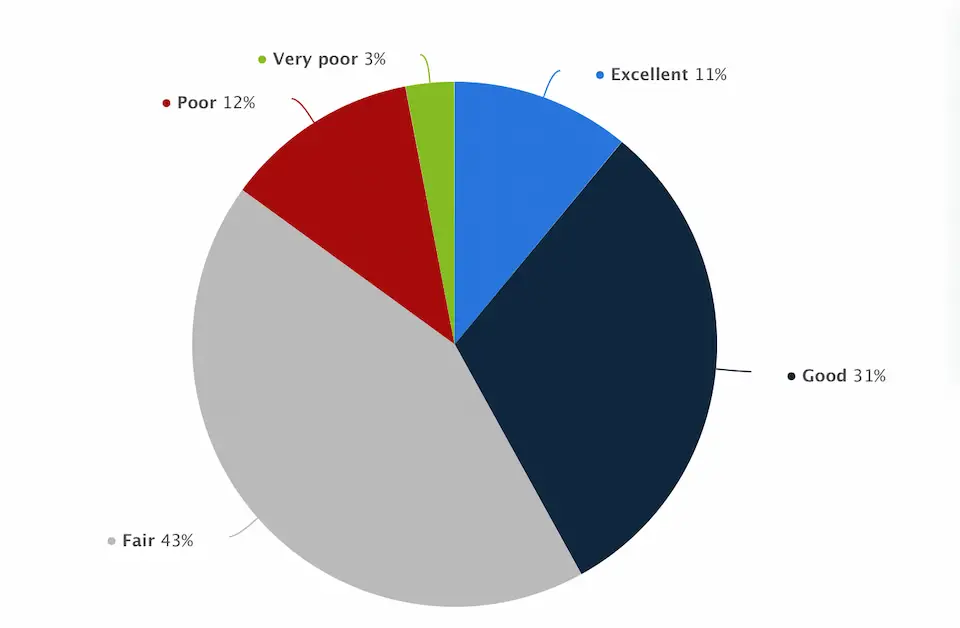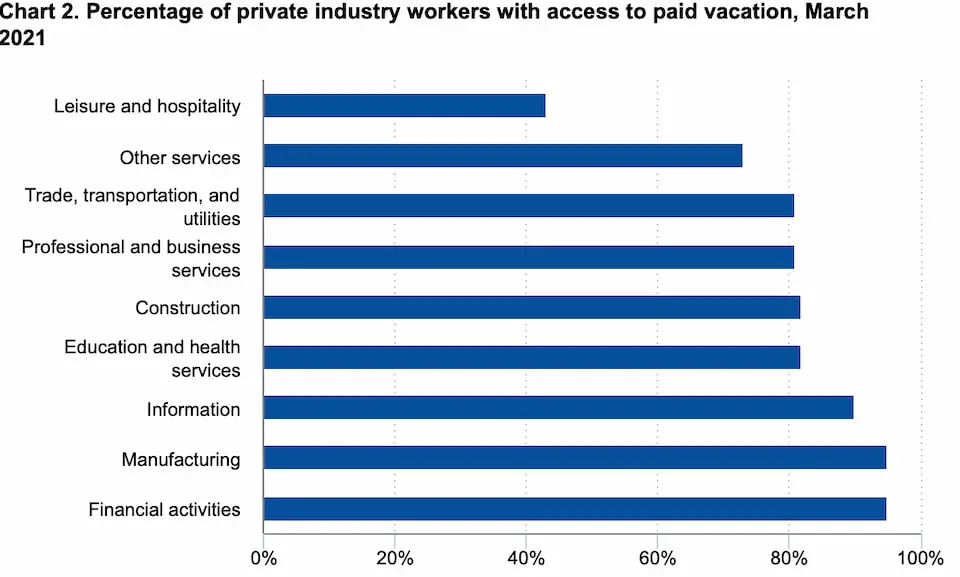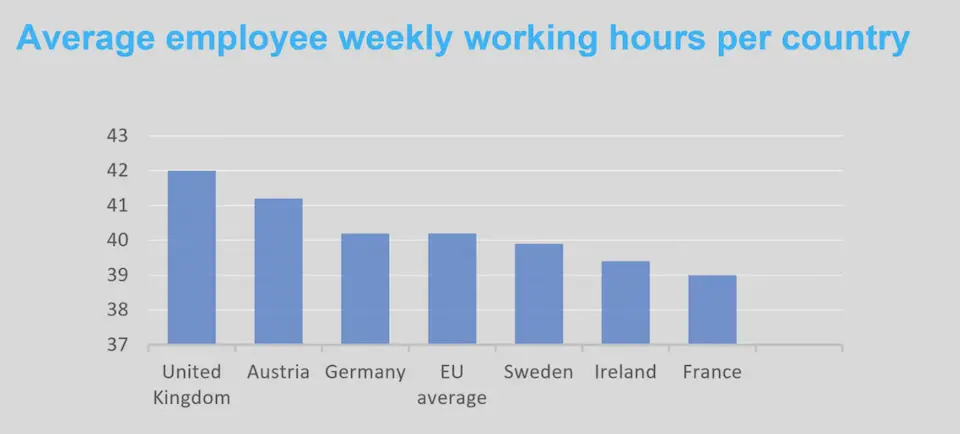Work-Life Balance in New Zealand: Better Than Overseas?

New Zealand is known to have a great lifestyle where a job doesn’t define the person and their life. When working in New Zealand, you get the best combination of a decent salary, interwork relationships, community, employee benefits, and adequate working hours & load.
75% of all workers in New Zealand are satisfied with their work-life balance, according to Stats NZ. In 2022, New Zealand was also ranked as the best country in the works in terms of work-life balance. Relaxed lifestyle, friendly and casual atmosphere at work, small teams, flexible hours, access to nature and outdoors; this, and more, contributes to the ideal work & life combination Kiwis enjoy.
What is work-life balance in the end? It’s different from job satisfaction, which depends on the amount of time spent working. Work-life balance is directly related to the feeling of enjoyment or fulfillment someone gets from their job. Read on to learn more about how your work life will look like in New Zealand.
How is work-life balance in New Zealand?

If you are concerned about your work life in New Zealand, you don’t have to worry. Working for a Kiwi company is likely to drive your job satisfaction up than down, thanks to the great work-life balance New Zealanders enjoy!
Living in New Zealand means having a good work–life balance and high quality of life. Everything in this country supports it, e.g., a stunning landscape, weather, a safe and friendly environment for families, facilities, and benefits for young and old. Not to mention, most cities offer great career opportunities and a decent paycheck.
Generally, companies in New Zealand value a healthy work-life balance and often offer flexible working hours and generous holiday leave to their employees.
Moreover, several ranks have shown these statements are true. In 2022, New Zealand has been ranked first in the world for work-life balance among the top 60 GDP countries. The ranking included score factors like:
- minimum wage
- sick leave
- maternity leave
- healthcare availability
- public happiness
- average working hours
- LGBTQ+ inclusivity
New Zealand has a total of 79.35 out of 100. The highlights that Kiwi employees enjoy are generous paid annual leave (32 days), a rate of sick pay (80%), and publicly funded universal healthcare.
New Zealand’s quality of life is on par with many European countries such as Denmark, Norway, and the Netherlands.
One of the surveys on work-life balance in New Zealand has shown that 76% of all participants said they were satisfied with that balance, where 75% of men were happy with their work & life and 77% of women, according to Stats NZ.
Besides, 96% of employees said their workplace relationships were generally good, and 91% reported very good or good relationships with their manager. The trend is that employees who have better relationships with their work colleagues are also more satisfied with their work-life balance (80%).
Half of New Zealand’s employees (51%) have flexible start and finish times. Interestingly enough, people who work flexible hours show a higher satisfaction with their work-life balance (79%) than those working fixed schedules (71%).
Lastly, 90% of the country’s workers say their employer would let them take time off for special family events, according to the New Zealand Families Commission.
Another survey from 2022 regarding satisfaction with work-life balance in New Zealand showed the following results:

According to this chart:
- 11% of employees say their work-life balance is excellent
- 31% say it’s good
- 43% estimate it as fair
- 12% of workers report their work-life balance to be as poor
- and 3% even say it’s very poor
Therefore, around 15% of all participants in New Zealand considered their work-life balance to be poor or very poor. I can only assume that the lowest indicators are given by people who work a lot for less money.
What’s not to enjoy when working in New Zealand?! Many employers offer flexible hours, part-time work options, maternity leave, and much more to help employees feel happier at work and at home. Most companies understand the importance of family and community, allowing for some exceptions like leaving early to pick up the child, etc.
That said, work is still work, even in beautiful and relaxed New Zealand. You are expected to do your job well, be punctual, efficient, professional, and responsible. But, you are certainly not expected to do overtime unless it was communicated. Since New Zealand has a strong sense of community, you are encouraged to work together with your colleagues and help each other.
Role of nature and environment in the work-life balance

New Zealand is a popular destination for travelers and backpackers from all over the world, thanks to its natural heritage. Nature and the environment also directly correlate with a good work-life balance. Everyone needs to unwind once in a while.
In addition, Kiwi’s relaxed lifestyle is centered around the natural environment and contributes to a good balance between job & personal life. Whether this is hiking, water activities, skiing, or mountain biking – your options are endless.
Going out, breathing in the fresh air, exploring, walking, and running – all are excellent ways to distress from work and improve your work-life balance.
Even in larger cities like Auckland and Christchurch, you are just minutes away from the famous breathtaking scenery, e.g., stunning beaches, mountains, lakes, and forests. New Zealand is an active nation with a deep love for the outdoors.
This allows employees to pursue their interests outside of work, such as hiking, skiing, surfing, or simply spending time with family and friends.
Work culture
The work culture in New Zealand is more informal than in countries like the US, Germany, the UK, and others. Management style is also usually relaxed. In most companies, it’s okay to dress quite casually. It’s common to have few drinks with your coworkers or have more warm relationships with them. Plus, many workplaces have a relaxed, family atmosphere.
Nonetheless, when working in a Kiwi company, everyone is expected to contribute. Yet, you also need to think independently and be a self-sufficient professional. The way Kiwi work is more autonomous than in places like India.
New Zealand business size
Another distinction from other countries is that New Zealand’s economy mainly comprises small to medium-sized enterprises. Most companies have less than 20 employees, and they account for 40% of economic output. In fact, a large number of New Zealand businesses average under 14 employees.
In the US, China, Germany, you name it, companies are larger, have more workers hence have more structure. Therefore, when working in a Kiwi company, you will have a smaller and more closely bound together team, which is beautiful, in my opinion. This fact also contributes to a warm, family-like work environment.
Paid leave
All full-time employees are entitled to at least 4 weeks of paid annual leave. Some employers offer 5 weeks. There are also 11 national holidays, bringing it to 31 paid days off work per year. Not bad!
The common time to take a vacation is in the summer holidays, around December and January.
Working hours
According to Figure.nz, the average employee in New Zealand works 37,5 hours per week (male) and 31,32 hours per week (female).
Standard office hours in New Zealand are 8.30 am – 5.00 pm. Generally, working hours cannot exceed 40 hours per week, excluding overtime. However, the total number of hours can exceed 40 if both the employer and employee agree.
Flexible working hours
One of the biggest benefits of working in NZ is that many employers allow flexible hours. That largely helps manage family life and work effectively. Over half of all workers surveyed by Stats NZ reported working flexible hours.
That said, working from home is less common than in other countries, so you are expected to show up in the office.
Parental leave
In New Zealand, parents can take paid leave to care for their newly born children. The parental leave entitlement is protected by law. Working parents are entitled to 52 weeks leave from work to care for a new child, and the government provides up to 26 weeks of paid parental leave.
From 1 July 2023 to 30 June 2024, the weekly payments for a new parent on parental leave are equal to $712.17. That’s $3,086 per month before taxes and $2,623 after tax.
Pension or Superannuation
When working in New Zealand, you will save money for retirement, and employers help here too. A company will usually contribute at least 3% of your gross salary to the savings fund, such as Kiwisaver.
In addition, by the age of 65, everyone who has been working in New Zealand for more than 10 years receives a pension which is equal to $1,157.34 (someone living alone or with a dependent child) and paid every 2 weeks.
Read more about retirement in New Zealand.
Social security and healthcare
In addition to all other benefits, employees and pretty much all residents of New Zealand have access to free public healthcare. That means you don’t have to pay for expensive insurance or worry about medical bills. That certainly makes you enjoy life more, especially when it’s stress-free!
Professional development
Professional development also plays a significant role in the overall satisfaction with your job. In the end, you won’t be happy if you don’t progress in your career for years. Kiwi companies support their workers to learn, grow, and thrive in their fields, not only by providing them with challenging tasks but also by giving additional training, mentorship, and further qualifications if needed.
Kiwi lifestyle
Kiwi lifestyle speaks for itself about the balance between work and private life. New Zealanders tend to spend a lot of time with their significant ones doing fun activities such as walking, hiking, biking, tramping, swimming, etc. Many finish work early so they can enjoy the weather and the outdoors. Besides sports, Kiwis love their barbecues and spending evenings on the deck.
Healthy lifestyle
New Zealanders overall are very healthy folks, and workplaces encourage you to become even healthier. Many companies have gyms, showers, and cycling parks for employees to promote exercise before work or on the lunch break. Cycling to work is also quite common, especially in Christchurch.
Commute time
All cities and towns in New Zealand are smaller and less crowded than other centers around the world. Hence, if you are moving to a city other than Auckland, you will spend little to no time commuting! That leaves you more time to spend with friends and family or to care for yourself.
Global ranks for work-life balance and New Zealand
In 2022, New Zealand ranked the best in terms of work-life balance among other top countries in the world. Moreover, Auckland ranks 5th on the list of cities with the best work-life balance. It’s the first time when a non-European city landed on the Work-Life Balance Index. Reasonably so, Auckland is a large but relaxed city with a family-friendly atmosphere that also offers great career opportunities, making it a great place to live and work.
So, how does the situation with work-life balance look globally? Let’s have a look at the survey results provided by OECD (Organisation for Economic Co-operation and Development), the participating countries are:
| Austria |
| Belgium |
| Chile |
| Czech Republic |
| Denmark |
| Estonia |
| Finland |
| France |
| Germany |
| Greece |
| Hungary |
| Iceland |
| Ireland |
| Israel |
| Italy |
| Korea |
| Luxembourg |
| Mexico |
| The Netherlands |
| New Zealand |
| Norway |
| Poland |
| Portugal |
| Slovak Republic |
| Slovenia |
| Spain |
| Sweden |
| Switzerland |
| Turkey |
| The United Kingdom |
| The United States |
According to the OECD, 10% of employees in the OECD countries work 50 hours or more per week in paid work. About 27% of Mexican workers do very long hours, followed by Turkey with nearly 25% and Colombia with almost 24% of employees.
In New Zealand, some 14% of employees work very long hours in paid work, more than the OECD average of 10%. Also, Kiwi full-time workers spend 62% of their day on average, or 14.9 hours, on personal care (eating, sleeping, etc.) and leisure (socializing with friends and family, hobbies, games, computer and television use, etc.). The average for the OECD is 15 hours.
Nonetheless, the average employee in New Zealand works only 26.3 hours weekly.
Auckland is the 5th best place to live in terms of work-life balance according to the Work-Life Balance Index. You can see more details in the table below:
| Ranking | City | Country | Happiness Index | Average Employee Weekly Working Hours | Paid Maternity Leave* | Work-Life Balance Score |
|---|---|---|---|---|---|---|
| 1 | Copenhagen | Denmark | 7.62 | 25.9 | 52 weeks | 70.5 |
| 2 | Helsinki | Finland | 7.84 | 29.4 | 52 weeks | 65.1 |
| 3 | Stockholm | Sweden | 7.36 | 29.1 | 320 days | 64.8 |
| 4 | Oslo | Norway | 7.39 | 26.9 | 480 days | 63.2 |
| 5 | Auckland | New Zealand | 7.28 | 26.3 | 52 weeks | 62.7 |
| 6 | Gothenburg | Sweden | 7.36 | 29.1 | 480 days | 60.7 |
| 7 | Reykjavik | Iceland | 7.55 | 33.6 | 6 months | 58.7 |
| 8 | Vienna | Austria | 7.27 | 32.4 | 16 weeks | 58.5 |
| 9 | Edinburgh | Scotland | 7.06 | 25.6 | 39 weeks | 57.1 |
| 10 | Belfast | Northern Ireland | 7.06 | 25.6 | 39 weeks | 57 |
| 11 | Luxembourg City | Luxembourg | 7.32 | 27.4 | 20 weeks | 56.7 |
| 12 | Amsterdam | Netherlands | 7.46 | 26.9 | 10 weeks | 55.6 |
| 13 | Zurich | Switzerland | 7.57 | 31.6 | 16 weeks | 55 |
| 14 | Prague | Czech Republic | 6.97 | 32.8 | 14 weeks | 53.6 |
| 15 | Manchester | England | 7.06 | 25.6 | 39 weeks | 53.4 |
| 16 | Glasgow | Scotland | 7.06 | 25.6 | 39 weeks | 53.3 |
| 17 | Brisbane | Australia | 7.46 | 32.4 | 10 weeks | 53.3 |
| 18 | Melbourne | Australia | 7.18 | 32.4 | 16 weeks | 53.1 |
| 19 | Dublin | Ireland | 7.09 | 33.6 | 18 weeks | 52.8 |
| 20 | Rotterdam | Netherlands | 7.46 | 26.9 | 26 weeks | 52.7 |
Besides Auckland, New Zealand ranked first in the world for work-life balance in a new Remote study. The global index study assessed the quality of life-work balance in the world’s top 60 GDP countries by reviewing the following key indicators:
- Annual leave (total days of paid leave, including public holidays)
- Sick pay (percent or wage of flat amount)
- Maternity leave (number of weeks paid)
- Maternity leave payment rate (percent of wage)
- Minimum wage
- Healthcare
- Happiness index score
- Average hours worked per week
- LGBTQ+ Inclusivity
The results are:
- New Zealand
- Spain
- France
- Australia
- Denmark
- Norway
- Netherlands
- United Kingdom
- Canada
- Brazil
The countries that ranked the worst included Qatar, Angola, Puerto Rico, Malaysia, and Nigeria.
Despite ranking first other survey has shown that less than half of the participants in New Zealand reported having an excellent or good work-life balance. About 15% of participants believed they had a poor or extremely poor work-life balance.
Apparently, Italians have the most time to enjoy life, where only 3% of workers do more than 50 hours per week. In contrast, 10.4% of American employees work very long hours. Lastly, the top most hardworking nations are:
- Mexico
- Seychelles
- The US
- Malaysia
- Nicaragua
- Fiji
- Costa Rica
- Thailand
- Paraguay
- Singapore
Work-life balance in New Zealand vs Australia vs US vs UK
How does New Zealand’s work-life balance compare to US and UK economic leaders?
Australia
Australia seems to be a country with a laid-back vibe, yet, people still work hard here. The biggest problem in Australia is that workers do unpaid overtime. In fact, there are plenty of employees who are being overworked.
According to an OECD survey, 13% of all employees in Australia work very long hours. On average, workers spend 4 hours and 20 minutes of unpaid overtime per week, according to the senior economist at the Australia Institute’s Centre for Future Work, Eliza Littleton.
Over half of all employees in Australia (56%) are unsatisfied with their working hours, and 46% of participants want more paid hours.
That said, the average working week in Australia is 38 hours, and employees get 4 weeks of paid leave plus bank holidays. New mothers are entitled to paid maternity leave for up to 20 weeks. It’s significantly less than in New Zealand, where you can take up to 26 weeks.
Similar to New Zealand, Australia has a universal public health insurance system, which covers all your medical expenses.
The US
The US has a bad reputation in terms of work-life balance.
Statistics are indeed shocking. 94% of professionals in the service industry in the US spend over 50 hours working per week, including on the weekends. Many US workers spend over 4 hours working for free every week.
48% of Americans consider themselves to be workaholics, but 72% of people consider work-life balance when job-searching. 77% of participants said they had experienced burnout at their current jobs at least once.
So what about paid leave and maternity leave in the US? In this category, the US scores the worst, as there are no set rules to provide these benefits. There is no national requirement for paid holidays, vacation days, or paid sick days. Each employer regulates these policies on its own.
According to statistics, nearly a third (31%) of US employees don’t get paid time off (PTO), and the average working American gets 11 paid days off. However, nowadays, it’s pretty common for private companies to provide paid leave for their workers to ensure a better work-life balance and job satisfaction.
In the graph below, you can see the percentage of employees who have paid leave in various industries:

The days of paid leave that you get in the US directly depend on how long you have been in the company. In 2021, more than one–third of private industry workers received 10 to 14 days of paid vacation after one year of service. After 10 years of service, 33% of workers had between 15 and 19 days of paid leave.
Moreover, there are some policies in place where eligible employees get 12 weeks of unpaid leave per year to care for an ill family member or a new child, also known as the Family and Medical Leave Act (FMLA).
However, BLS data found that less than one in four (23%) workers had access to paid family leave in 2021. Therefore, as a new mother working in the US, you are more likely to suffer a loss of income after giving birth.
The UK
Although Europe is known to have a good quality of life and balance between work and rest, the UK scores worse than you might think. Moreover, one definitely shouldn’t move to London in search of the optimal work-life balance.
In fact, one out of three employees in the UK feels they don’t have a good work-life balance. Look at the working hours among some European countries; the UK stands out.

Here are some facts about the work-life balance in the UK:
- 31% of UK employees feel that they don’t have a good work-life balance.
- 8 in 10 of surveyed employees who experienced burnout cite lack of work-life-balance as the root cause
- UK employees work the longest hours in Europe, with an average of 42 hours per week.
- 88% of UK employees have experienced burnout in the last 2 years, and a third of UK workers say they regularly suffer from burnout.
- 28% of all workers believe that they are less productive at work due to a poor work-life balance.
- 82% of Brits don’t take a full lunch break, with two-thirds of workers eating lunch at their desks.
That said, British workers get a paid leave of 5.6 weeks per year, which is mandatory for the employer. However, statutory leave can also include bank holidays, it’s up to the company to decide. Mothers also can’t complain about the time off as they can take up to 52 weeks of maternity leave. However, only up to 39 weeks of leave can be paid. Below are the current rates:
- first 6 weeks: 90% of their average weekly earnings before tax
- remaining 33 weeks: £172.48 per week or 90% of their AWE – average weekly earnings (whichever is lower)
So, if you are relocating from the UK to New Zealand to pursue a new job, you will almost 100% enjoy a better work-life balance.




![Salaries in New Zealand vs Australia: Let’s Be Real [2024]](https://simplenewzealand.com/wp-content/uploads/2023/06/pexels-david-peterson-4359064-2-768x689.jpg)

![How To Master a Cover Letter for New Zealand [Examples & Tips]](https://simplenewzealand.com/wp-content/uploads/2023/06/pexels-liza-summer-6347902-1-768x503.jpg)
![Working Remotely in New Zealand for a US Company [2024]](https://simplenewzealand.com/wp-content/uploads/2023/06/pexels-anna-tarazevich-14751273-1-768x512.jpg)